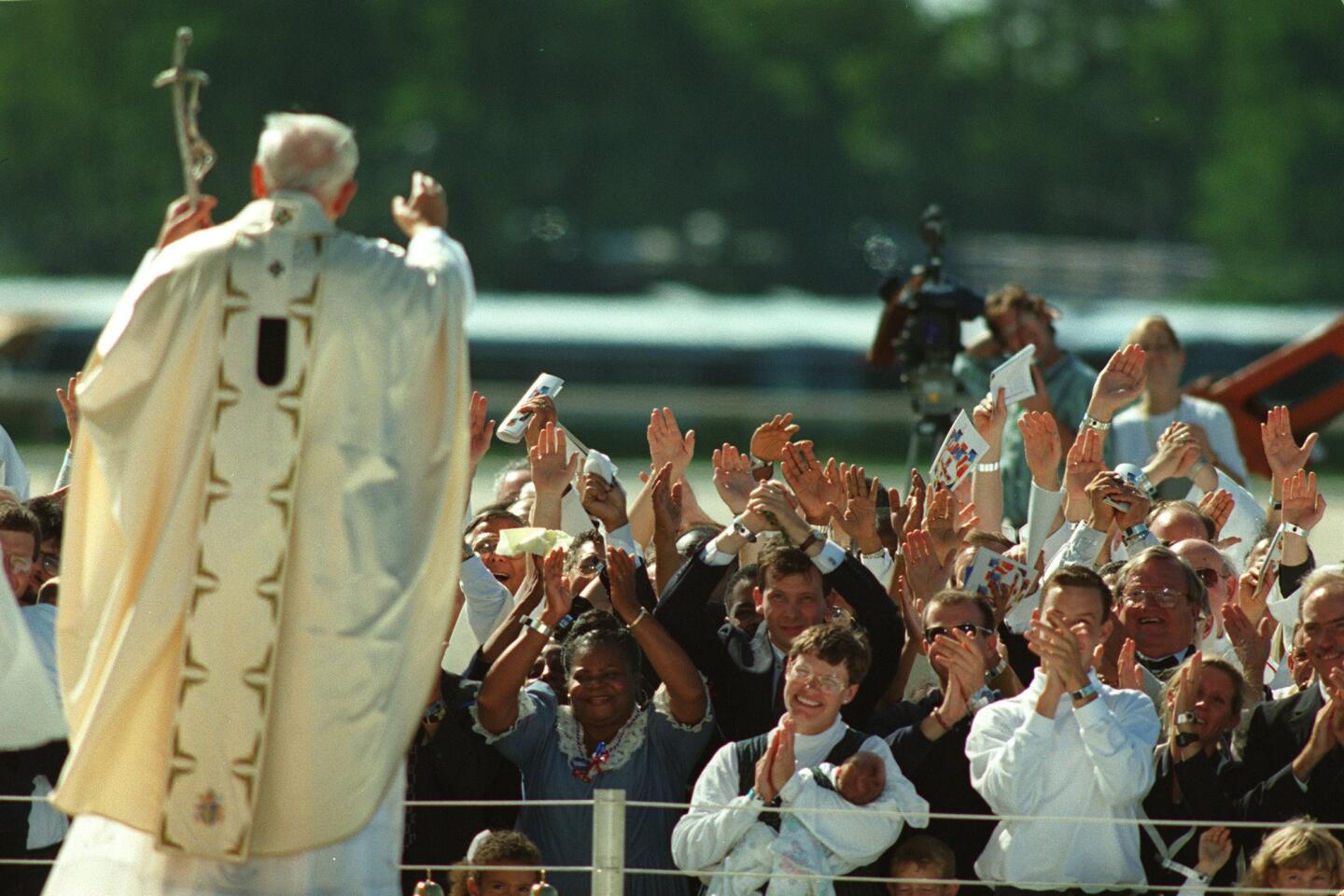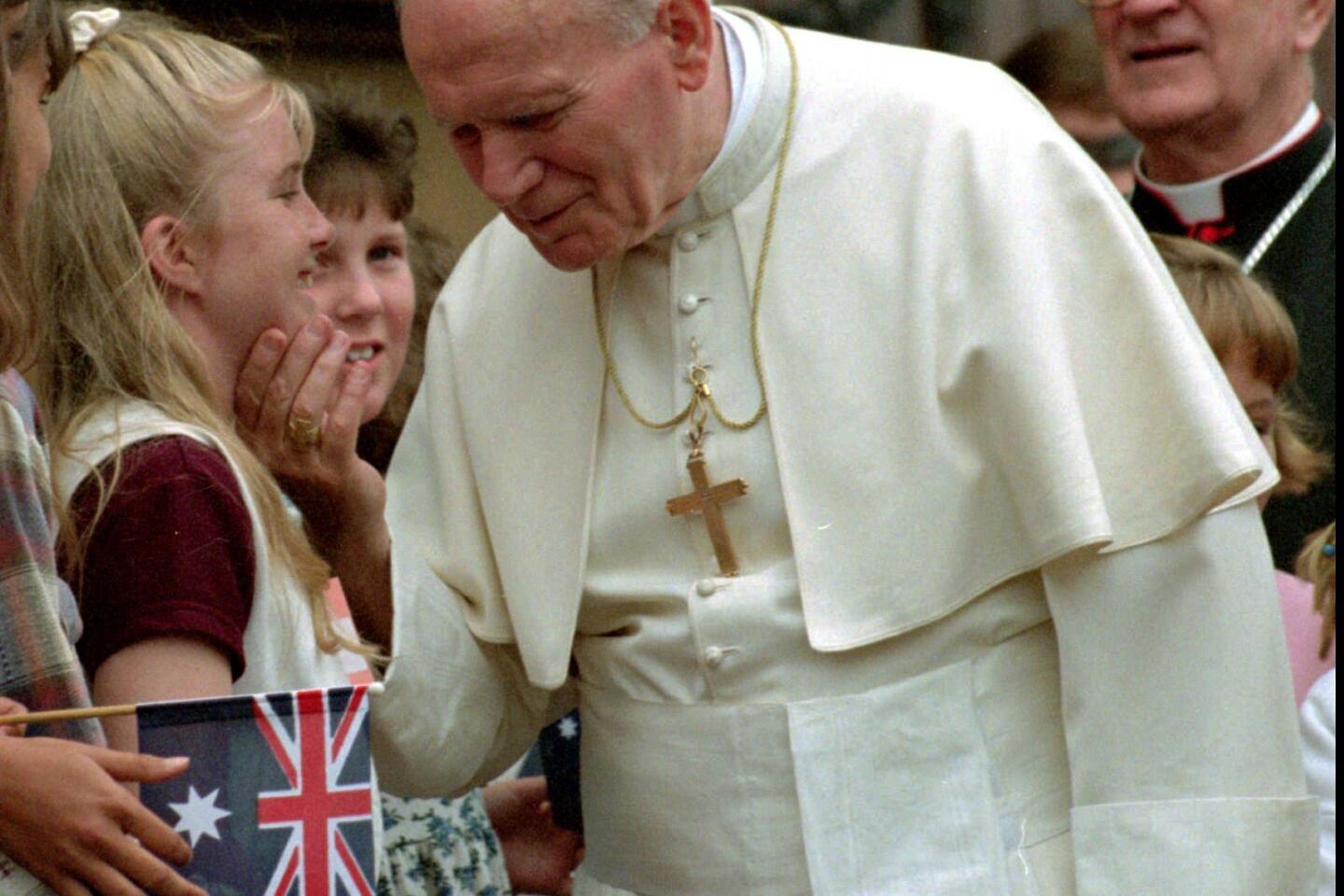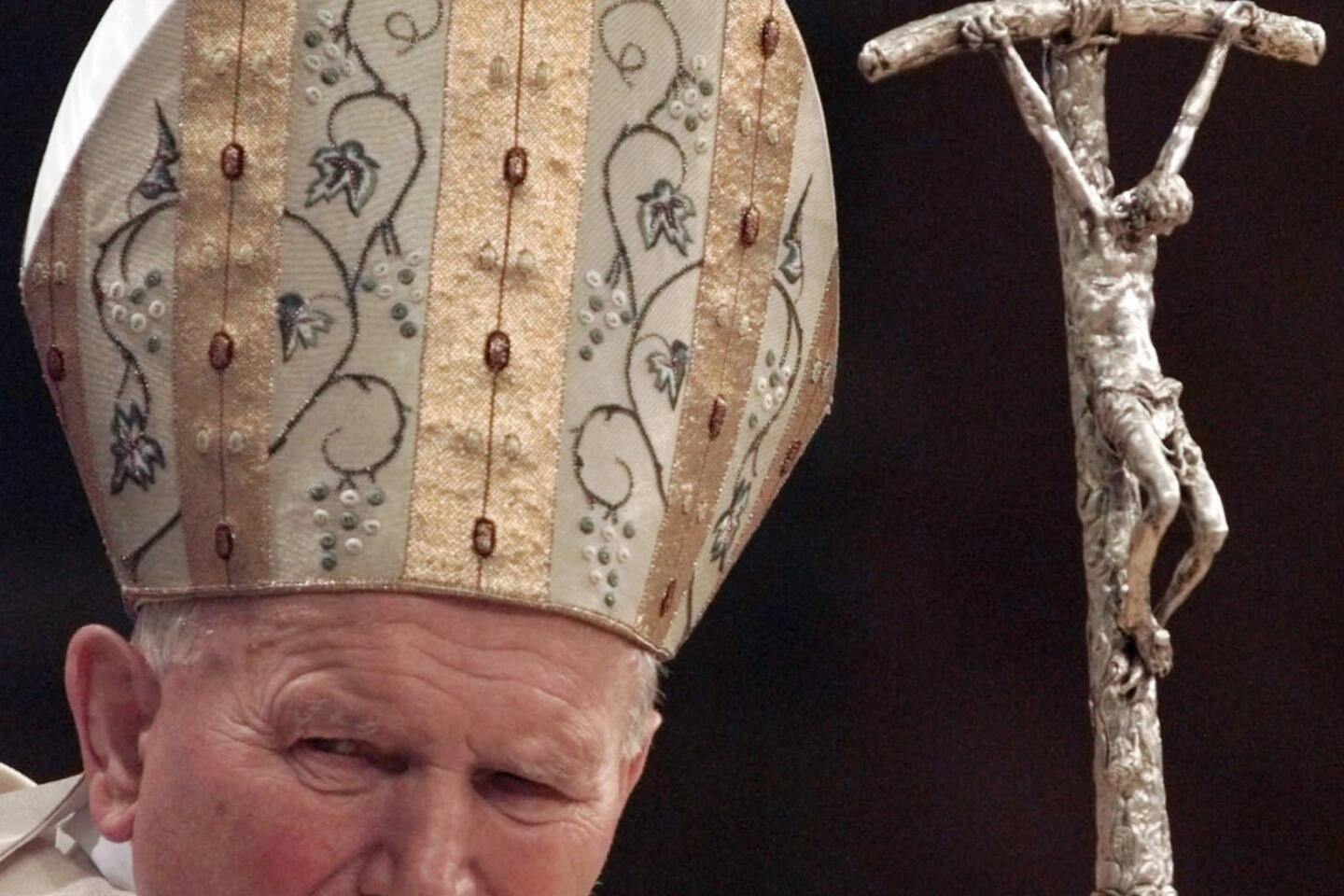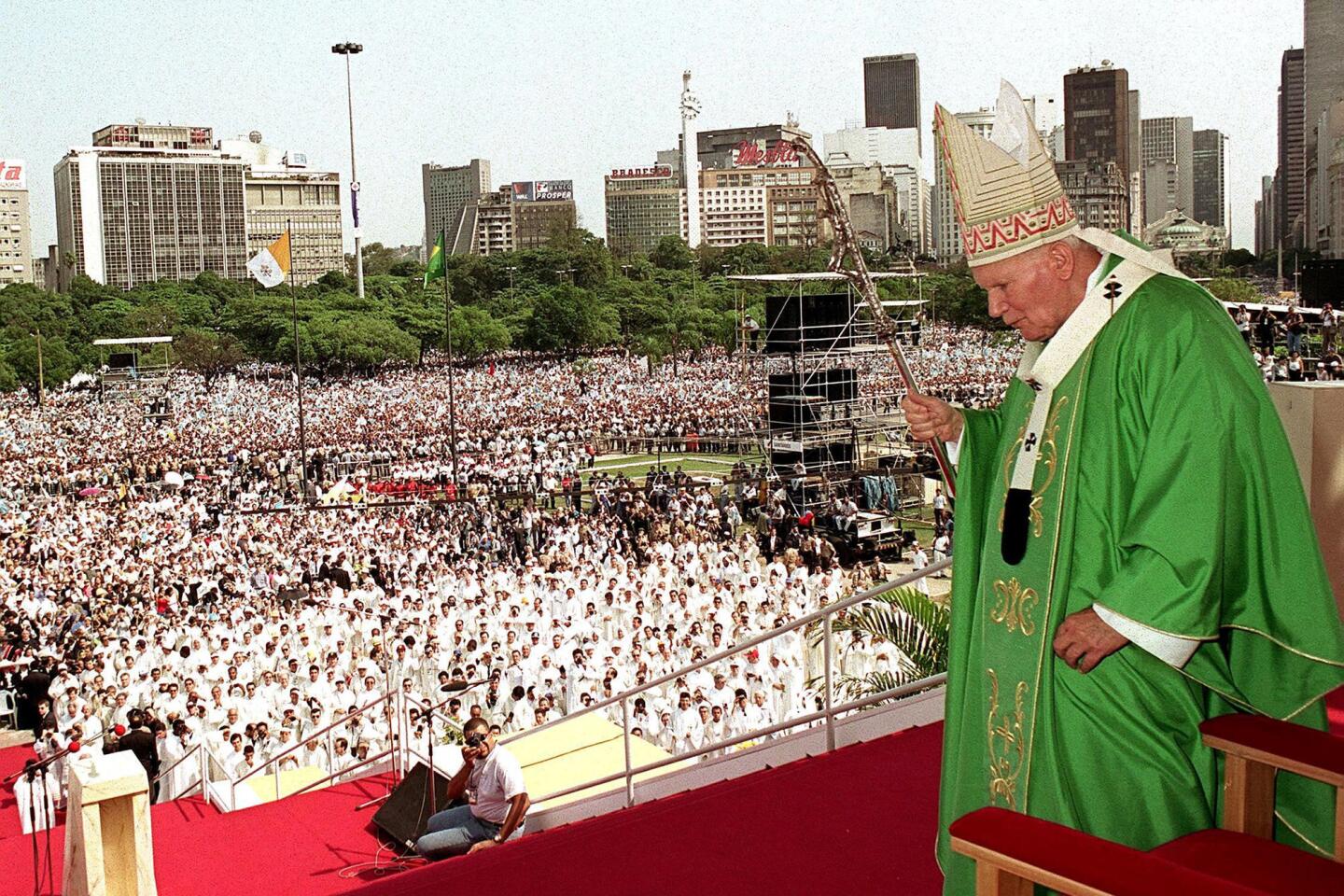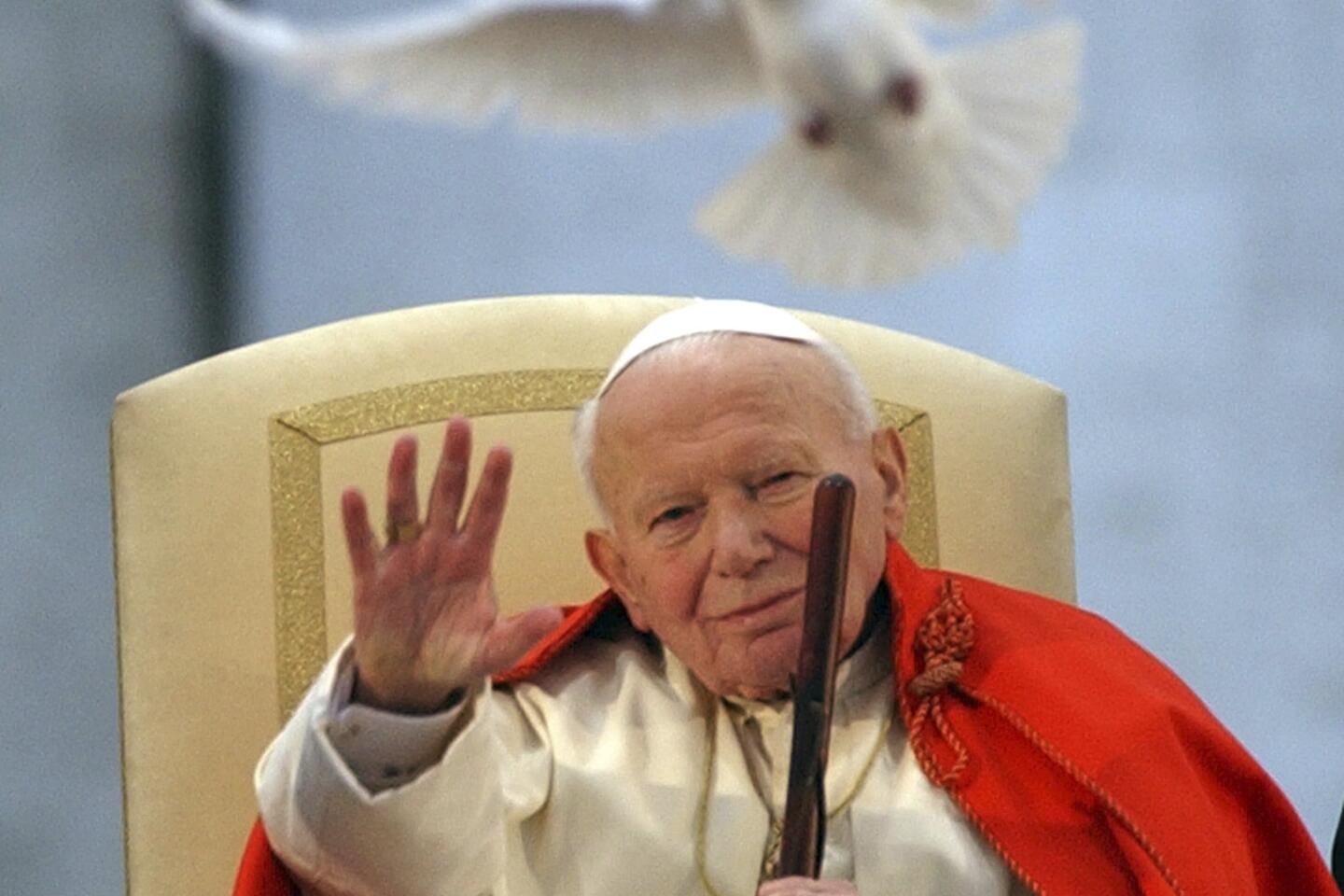Pope John Paul II set Vatican milestones on path to sainthood
- Share via
Reporting from Vatican City — Everything about Pope John Paul II was larger than life: his constant globetrotting, his naming of 483 saints -- more than all his predecessors combined -- and his 27 years in office, making him one of the longest serving pontiffs.
The Polish pope even set records at his funeral in 2005, which was estimated to be the largest gathering of heads of state and government in history.
But Karol Wojtyla also won over Catholics with a distinctly self-effacing charm, famously asking the crowd on the night of his election in 1978 to correct him if he stumbled in his Italian.
Born in 1920 in Wadowice, Poland, Wojtyla was brought up by his father after his mother died when he was 8. Ordained a priest in 1946, he lived first-hand the struggles of the church against the Nazis, then the Communists, before he became the first non-Italian pope in 455 years.
Three years after his election, in 1981, he survived an assassination attempt when he was shot in St Peter’s Square by Mehmet Ali Agca, a right-wing Turkish extremist he later visited in prison and forgave.
His backing for the Solidarity movement in his native Poland was credited with helping the overthrow of the communist regime there and even widely credited as contributing to the collapse of the Soviet Union in 1989.
Speaking at John Paul II’s beatification ceremony in 2011, his successor, Pope Benedict XVI, said he had “helped us not to fear the truth, because truth is the guarantee of liberty.”
Though he was held up alongside Ronald Reagan as a hero in the victory against the Soviet Union, the pope also was a fierce critic of excessive consumerism, ranking it alongside Marxism, setting the tone for later attacks on free market capitalism by Benedict XVI and Pope Francis.
Prone in private to a quick temper, John Paul II possessed a masterful charm in public, his speaking voice honed during a spell as an amateur actor in Poland. In 1984, he launched the successful World Youth Day event, which drew 7 million people in the Philippines in 1995.
In 2001, during a visit to Syria, John Paul II became the first pope to enter a mosque.
But even as he helped sow democracy in Eastern Europe, John Paul II centralized power within the church and would not tolerate dissent or disagreement over his tough doctrinal stances on issues such as abortion.
“Coming from Poland, where the church had been under siege from Nazism, then Communism, he felt the need for unity and one voice,” said Father Thomas Reese, a commentator at the National Catholic Reporter. “As pope, loyalty became essential, and more important than pastoral skills and competence.”
John Paul was accused of ignoring growing reports, particularly from the United States, of priests sexually abusing minors, and he continued to back Father Marcial Maciel, the founder of the Legion of Christ religious order, even as accusations emerged that Maciel had fathered offspring and abused children.
Kington is a special correspondent.
More to Read
Sign up for Essential California
The most important California stories and recommendations in your inbox every morning.
You may occasionally receive promotional content from the Los Angeles Times.
